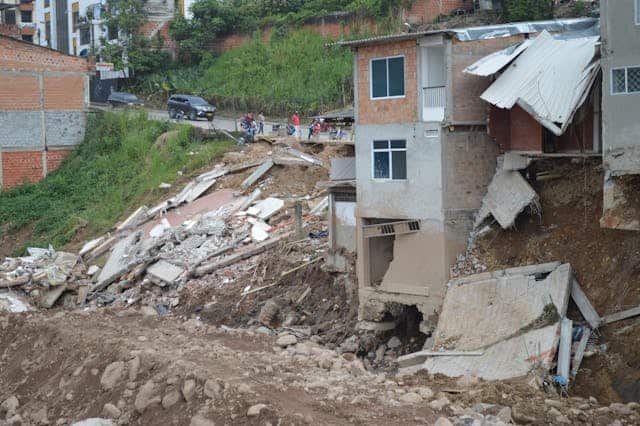Hurricane Season Overview
Hurricane season is a time of heightened weather activity, where powerful storms can materialize with little warning. Understanding the different hurricane categories can be incredibly helpful in grasping these storms’ potential impact on your area. This knowledge enables you to take timely and effective action to safeguard your home and family, giving you a better sense of control and preparedness.
The hurricane season normally lasts from June to November, with the most activity from August through October. Throughout this time, keep yourself updated on local advisories and weather forecasts. Reviewing historical data from past hurricane seasons can also provide insights into what to expect and how to prepare your home better.
Importance of Preparation
Preparation is your best defense against a hurricane’s destructive forces. While you can’t eliminate all risks, being proactive may significantly reduce the damage to your property and guarantee your loved ones’ safety. Proper preparation involves a combination of home inspections, emergency planning, and staying informed.
Failing to prepare can result in severe property damage, expensive repairs, and endangerment of your family’s lives. Investing time and resources into preparation now can save significant costs and reduce stress in the future. Conducting regular drills and revisiting your preparedness plans can also help identify any gaps or improvements needed, ensuring you remain ready for any scenario.
Home Inspection Checklist
Finding weak points in a house that a cyclone could target requires a comprehensive inspection. Here’s a checklist to guide you through the process:
- Inspect the roof for loose shingles or tiles, and replace any damaged ones to avoid leaks and structural damage. If you’re unsure about your roof’s sturdiness, consider hiring a professional to assess your overall condition.
- Check windows and doors for leaks, cracks, or weaknesses. Ensure they are appropriately sealed to withstand strong winds and rain. Installing weatherstripping and door sweeps can enhance their resilience.
- Secure outdoor items like furniture, grills, and potted plants. In high winds, these can become dangerous projectiles. Store smaller items inside your home or garage, and anchor more oversized items using strong ropes or bungee cords.
- Maintaining clean gutters and downspouts will help ensure appropriate drainage and guard against water damage. Regularly cleaning and inspecting gutters can prevent blockages and reduce the risk of water damage to your home’s function.
Creating an Emergency Kit
Access to basic supplies can be limited during a hurricane, making an emergency kit indispensable. Here’s where should include:
- Non-perishable food and water for at least three days. Remember to consider dietary needs and include appropriate items. Good options include dried fruits, energy bars, and canned items.
- First-aid supplies, including bandages, antiseptics, and any necessary prescription medications. Ensure you have an ample supply of critical medications, as access to pharmacies may be limited post-storm.
- Luminous objects, spare batteries, and a handheld or battery-operated radio to remain informed on meteorological and emergency alerts. Glow sticks can also be a reliable and long-lasting light source if batteries run out.
- Essential documents like identification, insurance policies, and bank records are stored in a waterproof container. Keeping digital copies stored securely online can be a backup if physical documents are lost or damaged.
- Cash in small denominations, as electronic payment systems may be down during and after the storm. Small bills and coins can be crucial for purchasing necessary supplies from local vendors who may need access to card payment systems.
Securing Your Home
To minimize damage from hurricane winds and flooding, consider these measures:
- Install storm shutters or board up windows with plywood to protect against flying debris. If storm shutters are unavailable, use thick, marine-grade plywood cut to size for optimal protection.
- Reinforce garage doors and entry points to withstand strong winds. Bracing kits and reinforcement bars can enhance the strength of these vulnerable entry points, reducing the risk of wind intrusion.
- Trim trees and shrubs to reduce the risk of branches breaking and damaging your home. Regular maintenance and pruning can prevent weak branches from becoming hazardous during a storm.
- Anchor large furniture and appliances to prevent them from falling and causing injury during the storm. Securing bookshelves, water heaters, and heavy cabinets can prevent accidents and further damage.
Family Evacuation Plan
An effective evacuation plan ensures that each family member knows what to do and where to go in the event of an evacuation. Here’s create one:
- Identify multiple evacuation routes and familiarize everyone with them. Having alternate routes can be crucial if primary roads are blocked or congested.
- Designate a safe meeting place if family members are separated during the evacuation. A relative’s designated public shelter can serve as a reliable meeting point.
- Ensure everyone knows how to use emergency contact numbers and has them written down in case of phone failure. Instruct family members on how to reach out to out-of-town contacts if local lines are down.
- Practice the plan regularly, especially with children, to ensure everyone is comfortable and confident. Repetition helps reinforce the steps and reduces panic during an actual evacuation.
Staying Informed
Keeping up-to-date with weather conditions and local advisories is crucial for making informed decisions during hurricane season. Utilize multiple sources for accurate information:
- Local news channels and radio stations provide real-time updates and emergency instructions. Creating preset channels for local news stations on your devices can save time during urgent situations.
- Weather apps offer customizable alerts for severe weather conditions. Choose apps that provide radar imagery, severe weather warnings, and reliable updates.
- Subscribe to emergency alert systems for immediate notifications on weather developments and evacuation orders. Most municipalities offer sign-ups for text or email alerts, ensuring you receive timely information.
By staying informed and taking the necessary precautions, you can better protect your home and family during hurricane season. Knowledge is power, and keeping abreast of the latest developments will help you navigate the challenges of hurricane season effectively. Regularly checking weather updates and maintaining open communication with local authorities can significantly impact your preparedness efforts.
Published By: ImproveResidence.com




